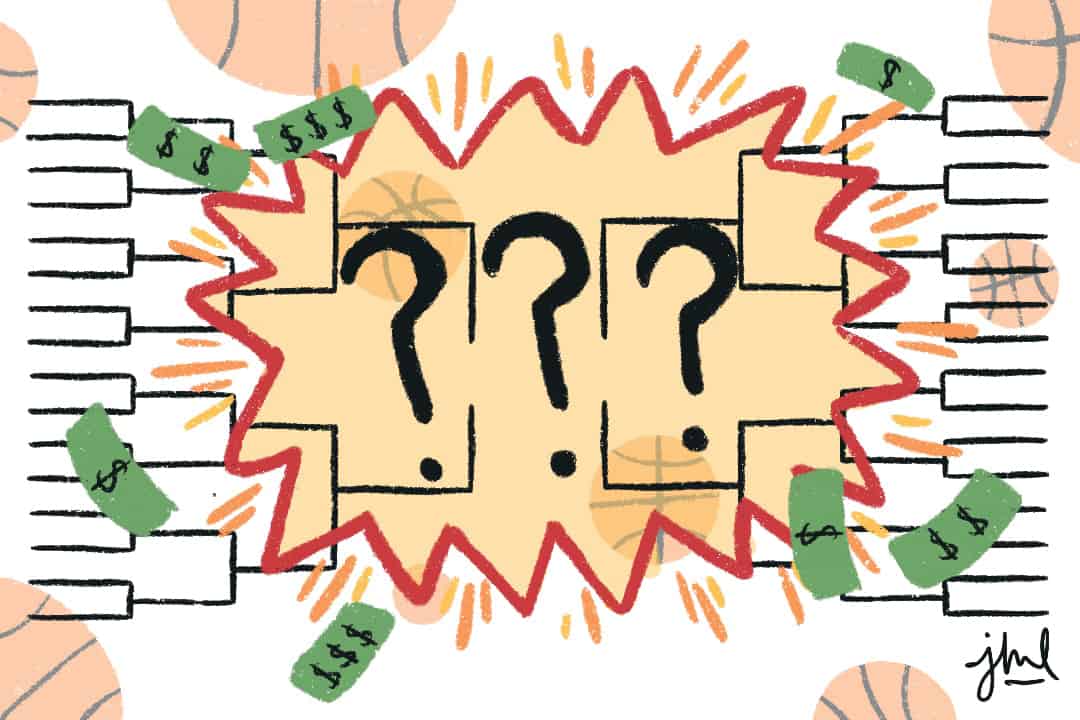There’s only one time a year that mildly drunk college fans, adrenaline-induced buzzer beaters, and broken dreams can all coexist — and that’s March Madness. Teams work hard all season, clawing through tournaments to gain a spot in the NCAA Men’s Basketball March Madness Tournament, or they can be selected by the NCAA committee.
One factor that plays into the excitement surrounding the tournament is the household tradition of creating March Madness brackets. It’s predicted that more than 30 million US adults fill out March Madness brackets every year. Don’t understand why? Keep reading.
The March Madness tournament features 68 college teams, ranked by the March Madness Selection Committee, that compete in seven rounds for the national championship. The games are all single-elimination games, which means that if you lose, you’re out. The teams are given ‘seeds’ — a ranking of each team’s strength made by the committee based on their performance in the regular season.
The best-seeded teams don’t always win, though — as Kentucky fans know all too well, considering their number-two seeded team lost to number 15, Saint Peters, on Thursday. Sometimes, the weaker teams just “want it more.”
The March Madness Bracket Challenge allows fans to tap into this crazy unpredictability in a fun way. When building a bracket, fans choose which teams they think will win for each of the 63 games.
The perfect bracket isn’t something you brag about with your friends or co-workers; it could be your sole source of income. Last year, Warren Buffet pledged to give out $1 billion to any fan with a perfect bracket. People are starting to realize that making a bracket is a pretty good investment of your time.
Or is it? Even though millions of brackets are submitted each year, a perfect bracket has never been achieved before, and the odds are pretty slim. According to the NCAA, there are 263 bracket possibilities in total — meaning you have a one in 9,223,372,036,854,775,808 chance at fame. In this season alone, out of the nearly 20 million brackets created, there have been zero perfect brackets.
Do you think humans are the problem? Well, Time magazine made more than 10 million computer-generated robots create brackets in 2019, and none of them hit the mark. The low chances of winning are what makes people want to participate in the first place.
While it’s too late to fill out a full March Madness bracket, the next time that the words get thrown around, you’ll have a few facts to refer to. And who knows — next year you could be the one person with a perfect bracket, even though the odds will never be stacked in your favour!


